- #RoadtoLuanda25
- UNGA
#RoadtoLuanda25: UNGA80 marks a wake-up call for Africa and Europe to step up together for Multilateralism
- The Africa-Europe Foundation

Our work for this year’s United Nations General Assembly (UNGA80) marked a strategic milestone in the #RoadtoLuanda25 – a cross-continental initiative bringing fresh thinking, data insights and diverse voices to the heart of the upcoming 7th AU-EU Summit in Luanda, Angola.
Many thanks to those who joined our programme in New York, from the Collective Minds Council and AEF Women Leaders Network to all of you who took part in the Foreign Policy launch of our Climate-Health Report with Fondation-S and ‘Tackling Future Threats’ convening with the Pandemic Action Network and The Elders. Together we generated new thinking about the next chapter of Africa-Europe relations and the partnership’s role in the future of multilateralism.
Here are the four main takeaways that are focusing our follow-up on Finance, Health and Multilateralism:
#1 / Africa-Europe have the potential to drive the transformation of our multilateral system
UNGA80 took place amidst a significant crisis of multilateralism, with geopolitical fragmentation, proliferating conflicts, and questions surrounding the commitment of key nations threatening the effectiveness of international cooperation.
But cooperation is needed now more than ever to tackle interconnected and globalised crises – from climate change to pandemics, insecurity to economic strains.
At our #RoadtoLuanda25 ‘Safe Space’ Debates in New York, African and European Ministers unpacked how our partnership can step up - acting as a stabilising axis to advance shared development goals and drive the needed reform of multilateralism. Our current work on the G20 and association to the Article 109 Coalition provide immediate-term frameworks for follow-up.
Here we also take inspiration from Rebeca Grynspan (Secretary General of UN Trade and Development), who joined our opening debate, reinforcing: “We need to have agency in these tough times… multilateralism is a choice, and on the #RoadtoLuanda25, Africa and Europe together have to demonstrate a strong force because multilateralism will depend on it.”
#2 / Delivery is key and collaboration non-negotiable
Our #RoadtoLuanda25 Debates at UNGA80 exposed the growing mood for implementation and the importance of delivery to restore trust in international cooperation - a point underlined by Moussa Faki (Special Envoy for the global Pact for Prosperity, People & the Planet): “On multilateralism, Africa and Europe really are in the same boat…in preparation for Luanda, there is pressure on both continents to show how multilateralism and our cross-continental cooperation delivers improvements in people’s lives”
This is why our work on tracking and facilitating the implementation of joint commitments is so critical, building on the AEF benchmarking State of Africa-Europe Report. When it comes to where we need to focus, AU and EU leaders at our New York debates underlined “Digital Infrastructure and Connectivity” and “Catalysing Investment for Energy Access and Transitions” as domains that hold the most promise for a forward-looking partnership.
In this perspective, Amina Mohammed (UN Deputy Secretary-General and Chair of the UN Sustainable Development Group), stressed “This is a defining moment for Africa-Europe…we’ve got the tools, we don’t need any more speeches, it’s about the implementation”, while Mary Robinson (AEF Honorary Co-President and Former President of Ireland) rallied “We don’t want to maintain ambition, we want to raise it”.
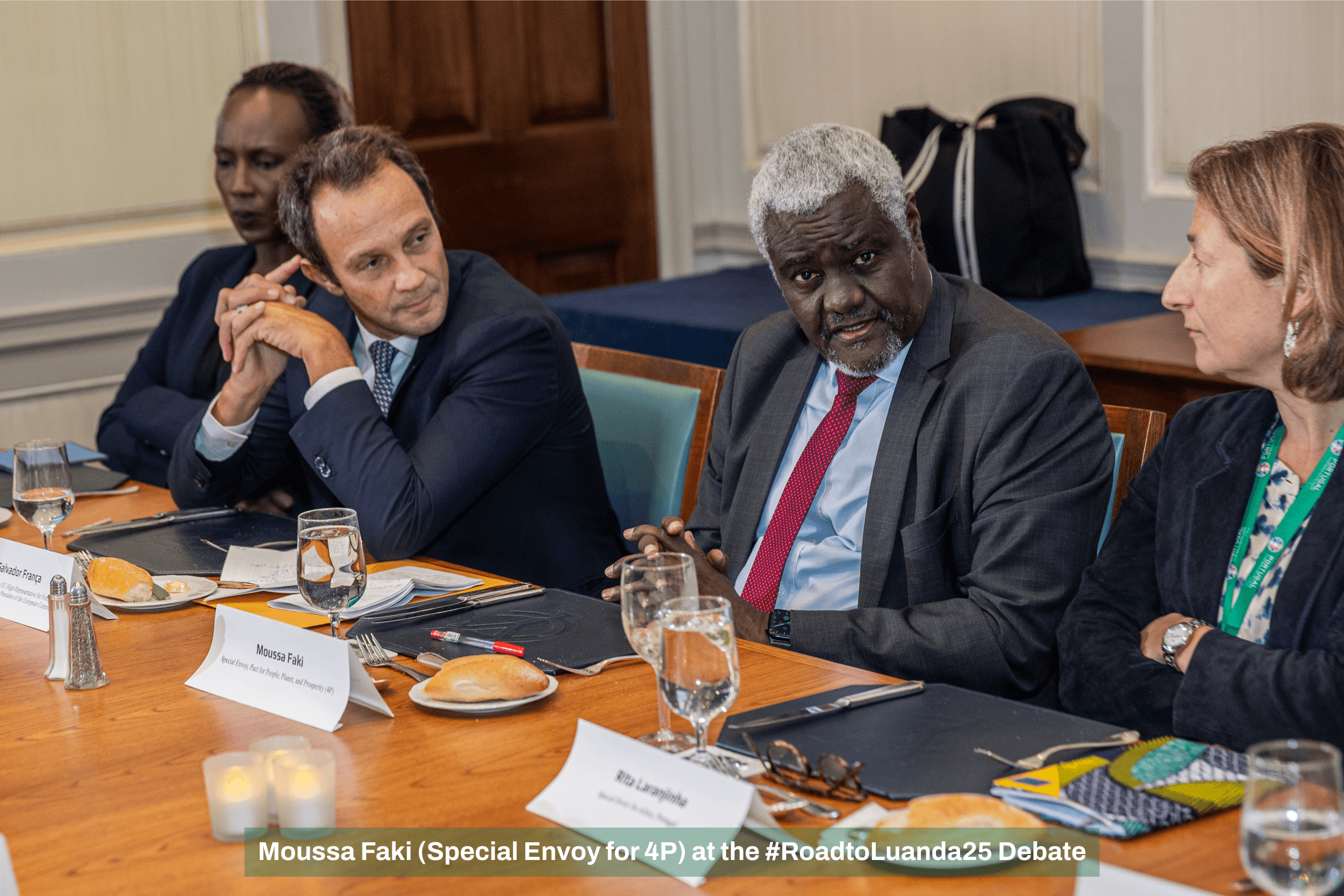
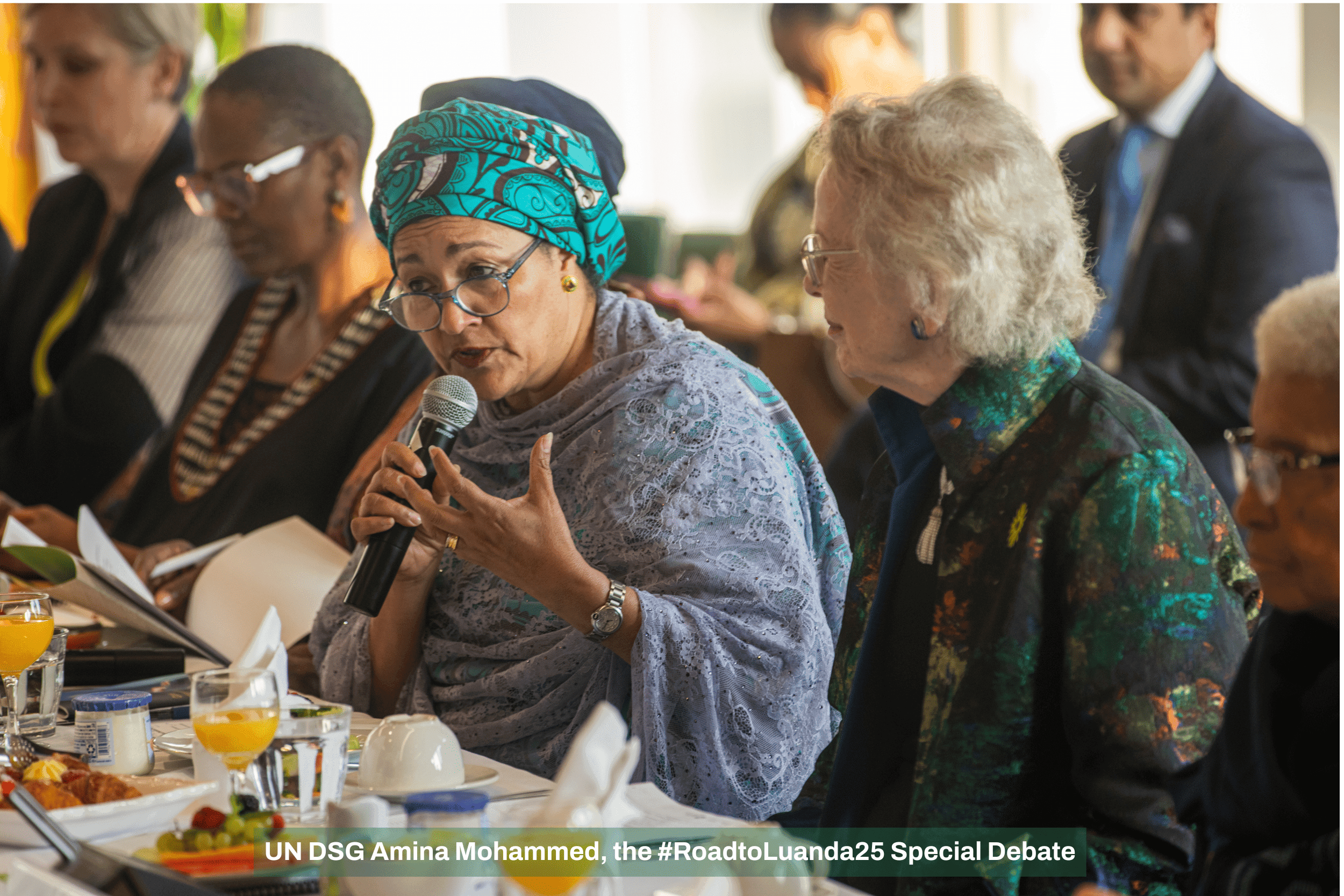
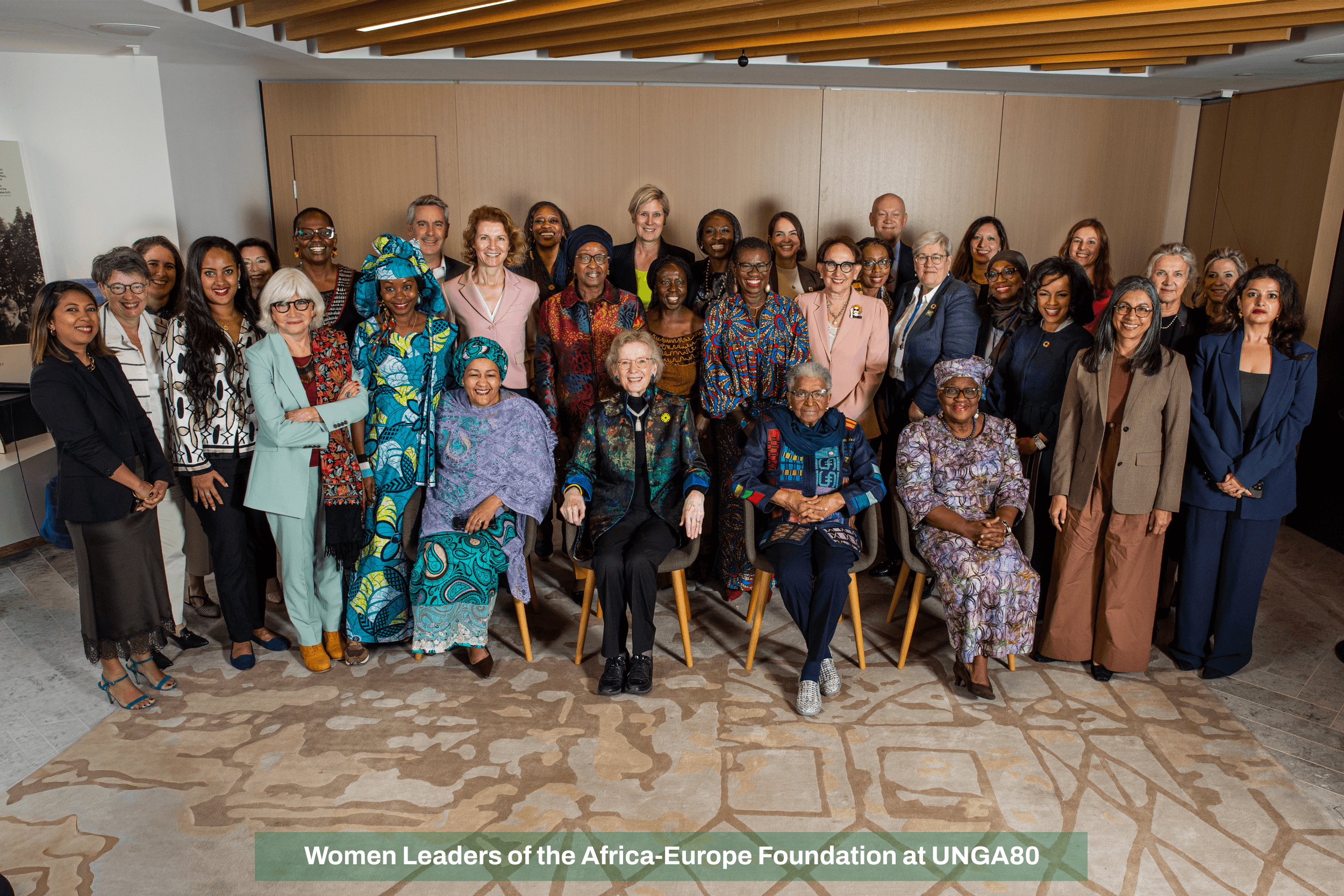
#3 / Finance remains central - representing a complete paradigm shift in how we rebuild international cooperation
Multilateralism faces a dual crisis - one of trust and one of financing.
Both cut across the strategic topics of our #RoadtoLuanda25 Debates, with a growing consensus on the need for a complete change of paradigm when it comes to financing our future, catalysing capital flows and reimagining global financial frameworks.
This is consistent with our work this year on the first Africa-led G20 and once-in-a-decade Financing for Development Conference. At AU-EU levels, calls for greater ownership of development strategies and strengthened win-win partnerships have increased the recognition for financial self-sufficiency.
Ellen Sirleaf Johnson (AEF Honorary Co-President and Former President of Liberia) stressed “Africa is determined to take its future into its own hands. I hear this from the African leaders that it is now the time to rebuild ourselves; and we look forward to the partnerships that will enable us to build our own domestic revenue systems and have a seat at all global tables to discuss matters. This is where this longstanding Africa-Europe partnership must now make a difference.”
With just five years left to deliver on the 2030 Agenda, domestic resource mobilisation has emerged as a key pillar for sustainable finance and a development model centred on more equitable economic cooperation.
Pragmatic steps include supporting digital tax administration and cross-border tax data exchanges; strengthening cross-continental collaboration on global tax reform, including digital economy taxation; joint cooperation and partnership in the use of ICTs and data analytics to assess the risk of financial flows becoming illicit and improving institutional capacities to track, analyse and act on financial data to stem these illicit flows.
Related content
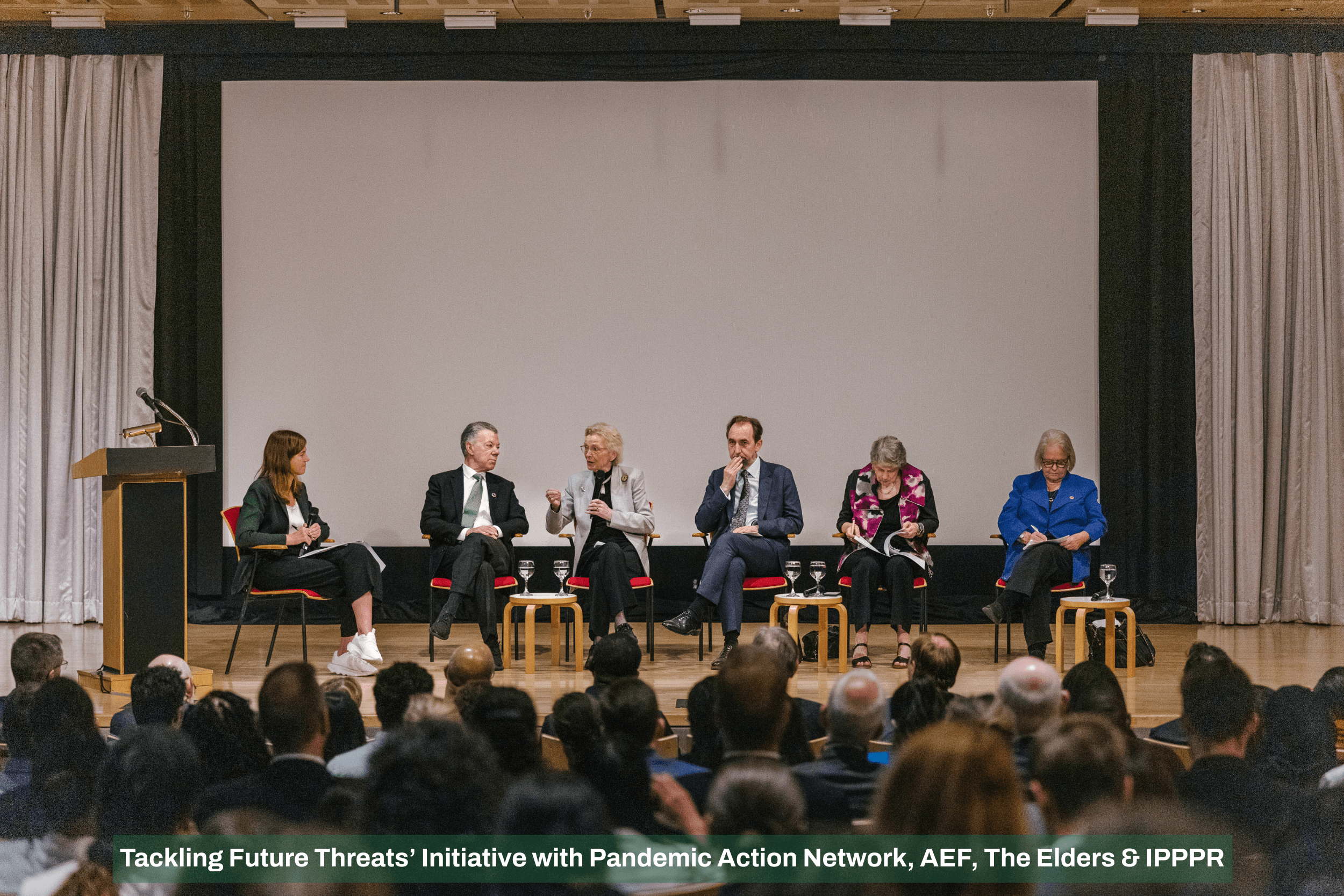
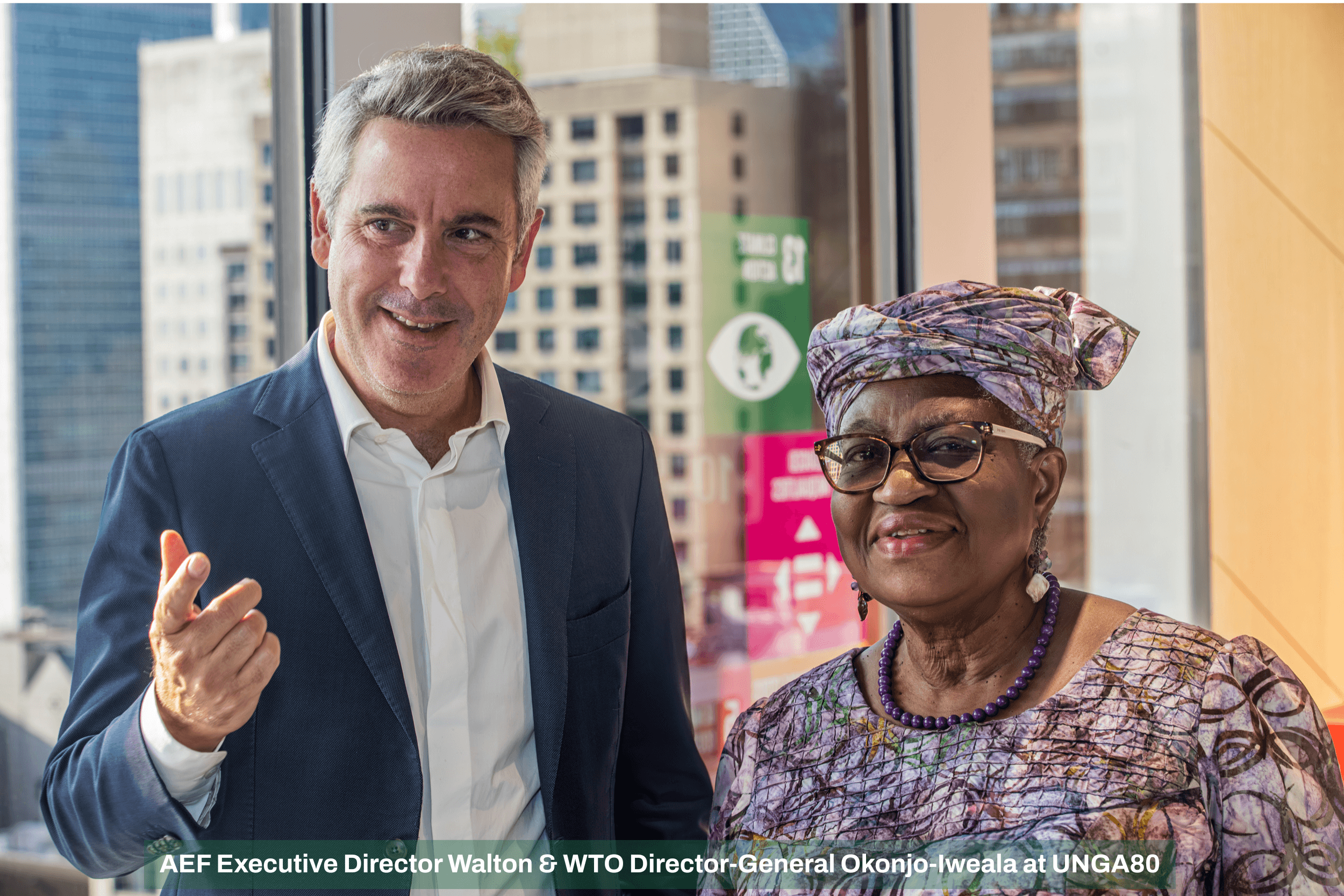
#4 / The interconnected nature of our crises requires the breaking of silos – and this is nowhere more evident than at the nexus of climate change, development and health.
The launch of our latest Action Report on Climate-Health, in partnership with Foundation S, exposes the growing recognition in society that health, climate and economic crises are interconnected. We now need our political leadership to catch-up.
But beyond internationally coordinated action, the report calls on local leadership to be systematically embedded in decision-making. It positions communities as frontline actors to climate change who are not only adapting but innovating - designing scalable health solutions that extend far beyond their borders.
These locally led solutions reflect lived realities that have the power to inform realistic global policy and practice. By partnering with and investing in communities through training, infrastructure and participatory governance, we can address challenges in a demand-driven approach and leverage multilateralism’s inclusive conveying power to translate declarations into implementation.
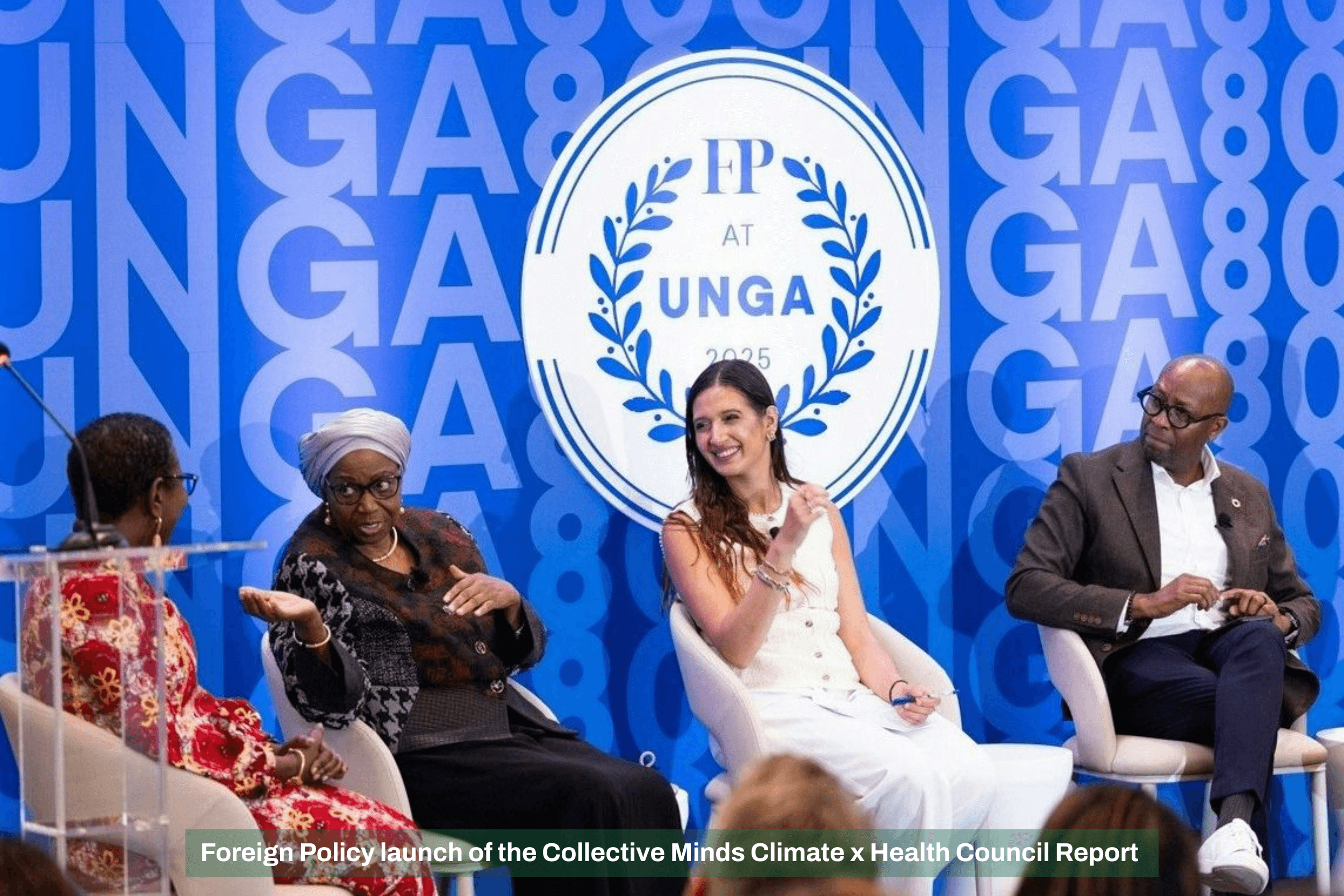
An area for action echoed by Yvonne Aki-Sawyerr (Mayor of Freetown and member of the AEF Women Leaders Network), “When a municipality can take the lead, you are able to bring adaptive learning to scale... because local government has greater reach and access.”
At AU-EU levels, this includes establishing dedicated community engagement channels and positions for local leadership to participate in cross-continental climate–health dialogues and decision-making structures, as well as developing cross-sectoral policies and financing strategies that integrate infrastructure development, health system strengthening, and climate change adaptation priorities, such as through the Global Gateway Africa – Europe Investment Package.
To unlock further capital for locally-led solutions, Anne-Claire Amprou (Ambassador for Global Health of France) reminded us “We need all partners involved, not only global health initiatives, but also multilateral development banks, countries with domestic financing…it's a culmination of all these tools that can make the difference.”
“This is a defining moment for Africa-Europe and how we want to take this partnership forward. If this is not a co-creating, collaborative, respectful relationship, it’s not going to work”
Our convenings in New York brought a goldmine of inspiration and insights, energising participants to think beyond the status-quo. Some of our other favourite quotes from the high-level week.
🌟 Amina Mohammed (UN Deputy Secretary- General) “This is a defining moment for Africa-Europe and how we want to take this partnership forward. If this is not a co-creating, collaborative, respectful relationship, it’s not going to work”
🌟Gro Harlem Brundtland (Former Prime Minister of Norway and former Director-General of the WHO, Member of The Elders) “Without realising connectivity, and the interdependence between nations, it is impossible to build and to continue having strong international institutions. The idea of long-term, long view leadership, requires that the prime ministers and the presidents of governments feel responsibility, not only for their own country but for the world.”
🌟Nardos Bekele-Thomas (CEO, AUDA-NEAPD) “We need to look at our partnership and be honest with each other. We have a golden opportunity to interrogate who we are, what we stand for, and where we’re going. Our solidarity is becoming more and more critical. If we go the Luanda Summit and repeat the same things, we will not bring different solutions. We need to wake up and reset. Africa and Europe should look beyond short term gains at long-term transformational change.”
🌟Bineta Diop (AU Special Envoy on Women, Peace and Security) “We need to shape the next chapter of Africa-Europe relations. We cannot afford to go to Luanda and just talk—we must sign and act.”
🌟Awa Marie Coll-Seck (former Minister of Health and Social Action of Senegal and member of the Collective Minds Council) “We need to build bridges between the global, the national and the communities, knowing when we have a climate impact in countries, the communities are the first to understand…Philanthropies have a unique role to play as more flexible, catalytic actors, ensuring communities are well supported to adapt.”
🌟John-Arne Røttingen (CEO, Wellcome) “We need to remember mechanisms for collective problems" in the rush towards sovereignty and transactional relationships"
🌟Wanjira Mathai (Managing Director for Africa and Global Partnerships, World Resources Institute) “We're not going to breakthrough on trade or any of these other issues if we are not collaborating around technology transfer, around domestic finance mobilisation, around regional integration, around intra Africa trade and the imperative to invest in making development investable."
🌟 Githinji Gitahi (CEO, Amref Health Africa) “We need to lift community voices… recognise and trust their knowledge and ensure we provide tools and flexible funding for them to collect data and indigenous traditions into observatories for decision-makers to consider all opinions.”
🌍 Check-out the latest the latest Director’s Review of October 2025.